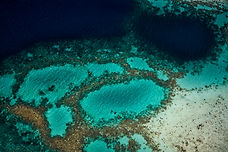
Pacific Conservation Database
Shark Conservation Fund: Developing conservation approaches for sawfish and rhino rays in Papua New Guinea
PIRT Member organisations
Wildlife Conservation Society (WCS), World Wide Fund for Nature (WWF)
Other partner organisations
Piko Biodiversity Network
Bata Community Development Foundation
Countries of implementation
Papua New Guinea
About
Develop national-level policy frameworks for sawfish and rhino ray protection; Manage and protect sawfish and rhino rays at the community-level; Fill data gaps to inform policy and enable sawfish and rhino ray population monitoring.
Framework Action Tracks
01 – Our people at the centre of conservation action, 02 – Behaviour change for nature conservation through heritage and cultural expressions, 07 – Effective marine protected areas, 11 – Reducing threats to threatened and migratory marine species, 13 – Ending unsustainable fishing, 19 – Science and traditional knowledge for target-setting and monitoring, 20 – Governance that works for nature conservation
Status
Ongoing
